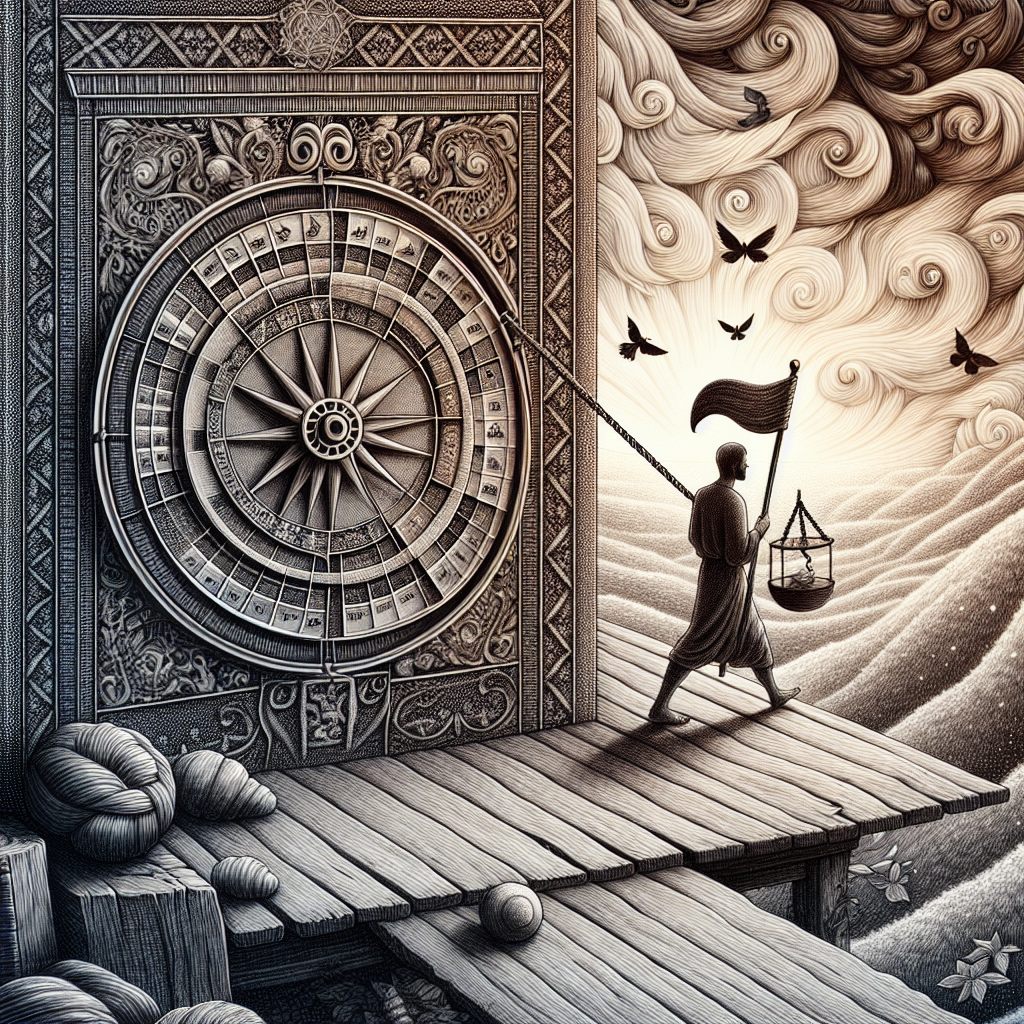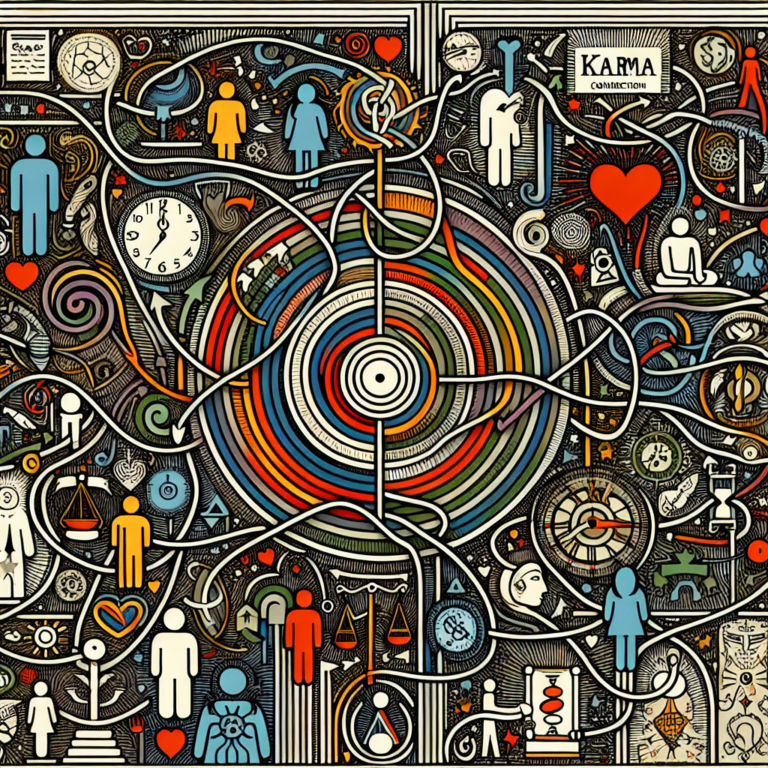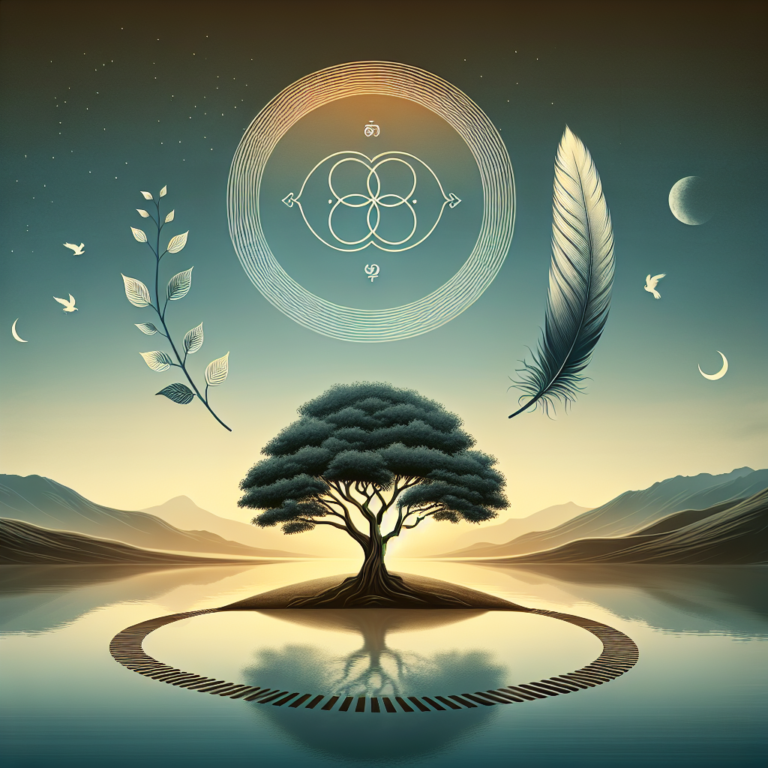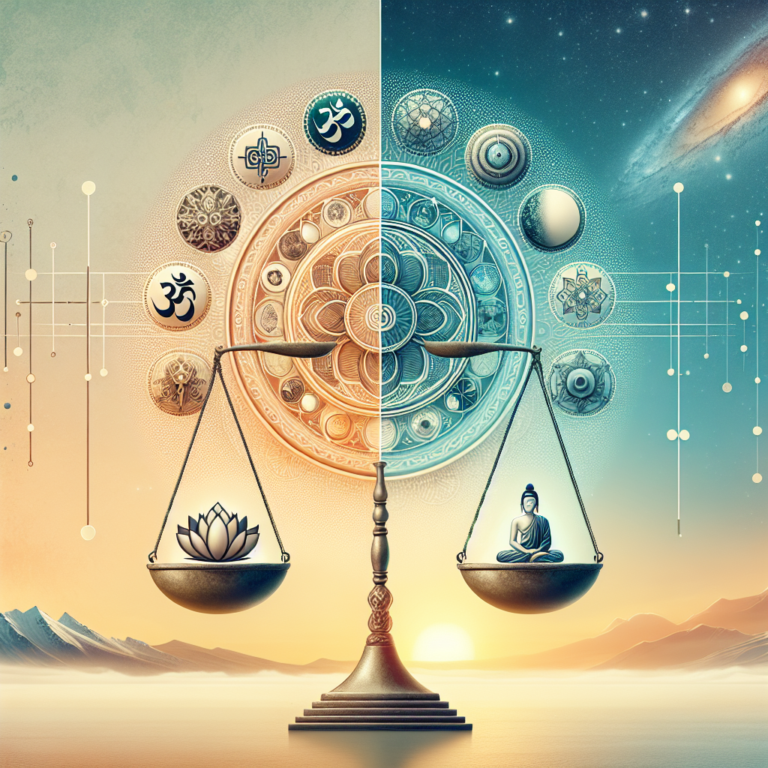The age-old debate between fate and free will has intrigued philosophers, scientists, and theologians for centuries. Are our lives preordained, governed by a cosmic blueprint? Or do we possess the agency to sculpt our own destinies through choices and actions? As societies evolve, modern perspectives are beginning to harmonize these seemingly conflicting viewpoints, incorporating concepts like karma into the discussion.
Understanding Fate and Free Will
At its core, fate refers to the idea that a predetermined set of events governs our lives. Many cultures have their interpretations of fate—often seen as the hand of the divine or the universe guiding individuals through their journeys. In contrast, free will suggests that individuals have the power to make decisions unconstrained by fate or preordained paths. In this paradigm, humans are seen as active participants in shaping their realities.
To fully grasp the dynamics between fate and free will, we must delve into the ancient concept of karma. Commonly associated with Eastern philosophies, karma serves as a moral law of cause and effect. It posits that our actions—whether positive or negative—lead to corresponding consequences, thus influencing our present and future experiences.
Karma: A Bridge Between Fate and Free Will
Karma embodies the delicate dance between fate and free will. It acknowledges that while certain elements of our lives may be preordained, our choices give us the power to change our trajectories. The implications of karma suggest that fate is not a rigid path, but rather a set of possibilities shaped by actions and decisions.
The Law of Cause and Effect: Karma is built upon the law of cause and effect. Every action generates a reaction, creating a tapestry of interconnected experiences. When individuals act with kindness and integrity, they’re likely to cultivate positive karma, which can lead to favorable outcomes. Conversely, negative actions can yield adverse effects, entrenching individuals further into a cycle of misfortune.
Personal Responsibility: Karma emphasizes personal responsibility. It is not an external force dictating one’s life but rather an internal compass guiding one’s actions. This awareness implies that, even amidst challenges, we hold the power to choose our responses—therefore shaping the circumstances of our destiny.
Life Lessons and Growth: Many philosophical traditions view life as a school for the soul, where lessons are learned through experiences. Karma allows individuals to learn from their past actions and strive for growth. According to this perspective, every circumstance, whether deemed fortunate or unfortunate, is a chance for introspection, evolution, and a pivotal step on the pathway to reaching a higher state of consciousness.
- Interconnectedness of All Beings: Karma also reflects the interconnectedness of all beings. The actions taken by one affect the lives of many—an idea resonating with concepts of social responsibility and empathy. By making choices that foster communal well-being, individuals contribute positively to the collective karma of humanity, potentially leading to a brighter shared future.
The Interplay Between Destiny and Choice
The interplay between fate and free will is nuanced. Some events may appear fated, while others seem a product of our choices. For instance, many believe that our birth circumstances—family, location, socio-economic status—are predetermined. However, how we navigate these circumstances and the choices we make can define our life’s trajectory.
Consider the story of two individuals raised in the same environment, facing similar opportunities and challenges. One may choose to embrace education and work diligently toward their goals, while the other may fall into complacency or negative behaviors. Despite similar foundations, their destinies will diverge based on the choices made throughout their lives. This divergence underscores the belief that while fate sets particular parameters, free will enables the navigation of life’s complexities.
Modern Perspectives on Karma, Fate, and Free Will
The dialogue surrounding fate, free will, and karma has gained momentum in contemporary discussions, especially within the realms of psychology, quantum physics, and spiritual philosophy. Here are a few modern interpretations:
Quantum Physics: Some interpretations of quantum mechanics suggest that multiple timelines and outcomes exist simultaneously. This idea aligns with karma, where choices taken at any moment can lead to different paths. The notion of the observer effect, where the act of observation can influence outcomes, resonates with the belief that our conscious decisions shape our realities.
Psychological Insights: Psychology emphasizes the significance of agency and personal choices in shaping individual identities. Cognitive-behavioral theories, for example, highlight how beliefs and thought patterns can influence behavior, suggesting that understanding one’s thoughts may help alter future actions and, consequently, outcomes.
- Spirituality: Many spiritual frameworks incorporate the idea of karma as a guiding principle, emphasizing the need for mindfulness in action. With an increased focus on holistic well-being and consciousness, individuals are encouraged to live authentically and intentionally, fostering awareness around the interconnectedness of their actions and the broader universe.
Conclusion
The intricate dance between fate and free will is a profound aspect of the human experience, with karma serving as a bridge uniting the two concepts. While certain elements of our lives may be predetermined, our choices remain potent catalysts that can alter the course of our destinies. Understanding and embracing our intrinsic power as conscious creators of our lives empower individuals to cultivate positive karma, enabling them to influence not only their own futures but also contribute meaningfully to the collective human experience.
Ultimately, life’s complexities call for a balanced view, one that embraces the wisdom of karma while also acknowledging our responsibility and freedom in choosing our paths. In doing so, we enrich our lives and navigate the unpredictable terrain of existence with purpose and intention.
FAQs
1. What is fate?
Fate is the concept that certain events in our lives are preordained or predetermined, often resulting from cosmic or divine forces.
2. What is free will?
Free will refers to the ability of individuals to make choices and decisions independent of external constraints, allowing them to shape their destinies.
3. How does karma relate to fate and free will?
Karma embodies the principle of cause and effect, suggesting that our actions and choices influence our circumstances and experiences, thereby bridging the gap between fate and free will.
4. Can karma be changed?
Yes, karma can be influenced by the choices we make in our lives. Positive actions can lead to positive outcomes, while negative actions can perpetuate challenges.
5. Are fate and free will mutually exclusive?
No, fate and free will are not mutually exclusive. While some aspects of life may be predetermined, individuals have the agency to make choices that can change their destinies.
It seems you’ve entered “Prompt” without providing additional context. How can I assist you further? If you have a specific question or topic in mind, feel free to share!, #Fate #Free #Karma #Shapes #Destiny, #Fate #Free #Karma #Shapes #Destiny, 1736310503, fate-vs-free-will-how-karma-shapes-our-destiny





